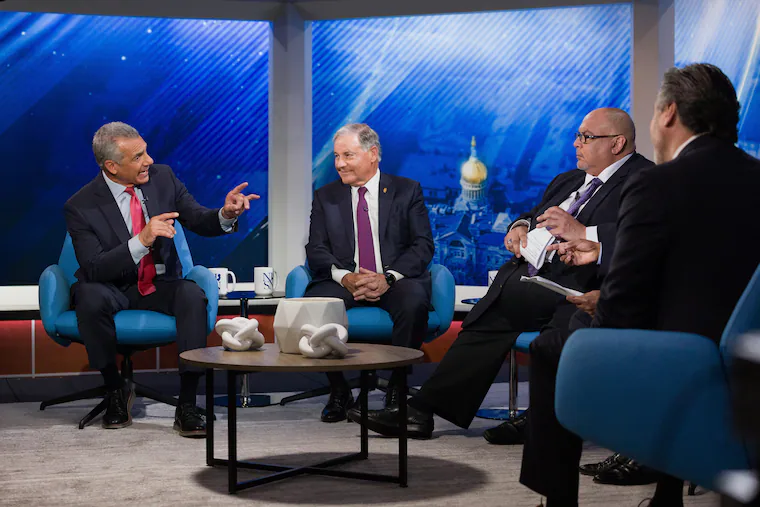
Across the river from Philadelphia, a second public media TV station will go dark after Republicans and the Trump administration stripped federal funding from NPR and PBS.
New Jersey PBS, the state’s only public television station, will shutter next year after suffering “very significant” budget cuts implemented by the Trump administration, the company announced.
“We have been proud to serve the state of New Jersey with content that inspires, educates and informs,” WNET, which manages New Jersey PBS, said in a statement.
New Jersey PBS will remain on the air through June 2026. The station’s nightly newscast, NJ Spotlight News with Briana Vannozzi, will continue to air on WNET’s PBS station, THIRTEEN.
NJ Globe’s David Wildstein was first to report the news of NJ PBS shutting down.
New Jersey PBS was formed 14 years ago, after New Jersey lawmakers and former Gov. Chris Christie shut down the New Jersey Network (NJN), a state-run public media company.
While several of NJN’s former radio stations were sold to WHYY in Philadelphia, WNET took over management of NJ PBS in 2011. In addition to the federal cuts, New Jersey cut state funding of NJ PBS by 75% in its 2025 budget, from $1 million to just $250,000.
“This is a big loss for New Jersey, which suffered a dearth of TV news coverage well before the internet ravaged the industry,” wrote Politico’s Matt Friedman, who has covered state politics since 2007. “NJ PBS’s coverage wasn’t as fast as some of New Jersey’s other remaining news outlets, but it focused on unsexy government policy that few other sources covered.”
New Jersey PBS is down to about 27 employees following a round of layoffs last month that cost about 11 staffers their jobs. At the time, the station said they “remain committed to providing New Jersey with news and content.”
NJ PBS’s closure comes on the heels of Penn State’s decision to shutter WPSU, the university’s NPR and PBS affiliate.
The first educational TV station in Pennsylvania, WPSU faced the combined fiscal forces of Trump’s cuts and declining support from Penn State, who voted against a $17 million transition plan that would’ve shifted ownership of the station to WHYY.
WPSU’s closure will reduce the number of public television stations in Pennsylvania down to six. Smaller stations face a tough financial future, including WQED in Pittsburgh (the home of Mr. Rogers Neighborhood) and WLVR out of Lehigh University, which lost 20% of its budget when Republicans voted to defund NPR and PBS.
WDIY, a small NPR station run in Bethlehem, Pa., is facing “significant financial challenges” in the wake of the federal cuts. Margaret McConnell, the station’s executive director, said WDIY can weather the storm for now and is committed to renewing NPR programming for another year, but is depending on a successful membership drive next month to help keep the lights on.
“Every contribution — no matter the size — directly supports our ability to adapt, innovate, and keep public radio alive in the Lehigh Valley,” McConnell said.



